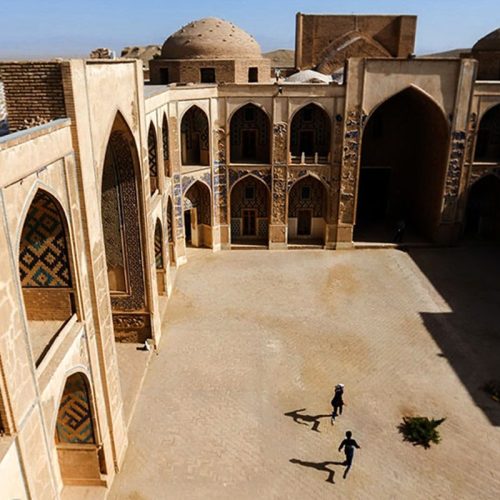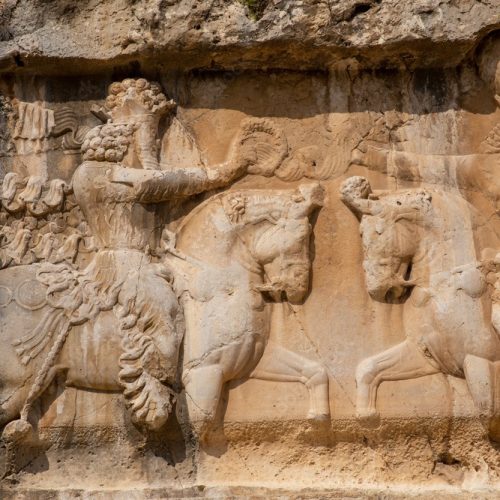By Dr. Farzin Mohammadi Professor of Ancient Iranian Studies, University of Isfahan
As I sit in my study at Tehran University, surrounded by ancient texts and modern interpretations of Iran’s philosophical heritage, I am struck by how deeply our contemporary Iranian identity is rooted in the philosophical traditions that emerged from this land over three millennia ago. The story of ancient Iranian philosophy is not merely an academic exercise in historical understanding – it is a living testament to the intellectual sophistication of a civilization that helped shape human thought.
Zoroastrianism: The Foundation of Iranian Philosophical Thought
The beginning of systematic philosophical thinking in ancient Iran can be traced to Zoroastrianism, a tradition I’ve spent decades studying. What fascinates me most about Zoroastrian philosophy is its revolutionary approach to the fundamental questions of existence. While other ancient civilizations were still grappling with polytheistic worldviews, Zoroaster introduced a sophisticated philosophical framework centered around the concept of Asha (truth/order) and the eternal struggle between good and evil.
The philosophical implications of Zoroaster’s teachings are profound. His conception of Ahura Mazda as the source of wisdom and goodness represents one of humanity’s first attempts to reconcile the existence of evil with the idea of a benevolent creator. The doctrine of free will in Zoroastrian thought – that humans must actively choose between good and evil – laid the groundwork for ethical philosophy in the Iranian tradition.
What particularly strikes me is how Zoroastrian philosophy approached the mind-body problem. Unlike the stark dualism that would later characterize Western philosophy, Zoroastrian thought saw the material and spiritual realms as interconnected aspects of reality. The concept of Fravashi – the divine essence within each being – suggests a sophisticated understanding of consciousness that continues to intrigue modern philosophers.
The Greco-Persian Era: A Synthesis of Traditions
The conquest of the Achaemenid Empire by Alexander the Great marked not the end but rather a transformation of Iranian philosophical thought. As someone who has dedicated years to studying this period, I find the intellectual cross-pollination between Greek and Iranian philosophy endlessly fascinating.
The establishment of Greek colonies in Bactria and the presence of Greek philosophers in the East led to a remarkable synthesis of philosophical traditions. The school of wisdom that emerged in this period combined Greek logical methods with Iranian mystical insights. This synthesis is particularly evident in the works of the Greco-Bactrian philosophers, who attempted to reconcile Platonic ideas with Zoroastrian concepts.
What many Western scholars often overlook, and what I’ve argued in my own work, is how this period influenced later Neo-Platonic thought. The concepts of divine light and emanation, so central to Neo-Platonism, bear striking similarities to Iranian philosophical ideas about the nature of reality and divine manifestation.
Manichaeism: The Universal Philosophy
Mani’s philosophical system represents one of the most ambitious attempts to create a universal philosophy incorporating elements from Zoroastrianism, Buddhism, and Christianity. Having spent years studying Manichaean texts, I’m continually amazed by the sophistication of its philosophical framework.
The Manichaean conception of reality as a cosmic struggle between light and darkness might seem simplistic at first glance, but it contains profound insights into the nature of consciousness and existence. Mani’s understanding of evil as the absence of good rather than an independent force presents a nuanced philosophical position that anticipates much later theological discussions.
What I find particularly relevant to contemporary philosophical debates is Manichaeism’s approach to the problem of determinism versus free will. The system proposed a complex interaction between cosmic forces while maintaining individual moral responsibility – a philosophical puzzle that continues to challenge modern thinkers.
Mazdakism: Social Philosophy in Ancient Iran
Mazdak’s philosophy, often misunderstood as merely a social reform movement, represents one of the earliest attempts to develop a systematic social philosophy. As I’ve argued in my previous works, Mazdak’s ideas about social justice and communal property were grounded in a sophisticated philosophical understanding of human nature and society.
The Mazdakian conception of desire as the root of social conflict, and the proposal of social sharing as its solution, reveals a deep understanding of human psychology and social dynamics. What fascinates me is how Mazdak attempted to ground social reform in metaphysical principles, creating a coherent philosophical system that addressed both individual and collective aspects of human existence.
The movement’s emphasis on the equal distribution of resources and social harmony was based on a philosophical understanding of justice that went beyond mere economic considerations. In many ways, Mazdakism anticipated modern discussions about social justice and economic equality.
Zurvanism: Time as the Ultimate Reality
Among all the philosophical schools of ancient Iran, Zurvanism holds a special place in my research interests. Its sophisticated treatment of time as the fundamental reality offers insights that resonate with modern philosophical and scientific discussions about the nature of time and causality.
Aesthetic Zurvanism
The aesthetic branch of Zurvanism developed a unique philosophical approach to beauty and artistic creation. As I’ve discovered through my studies, this school saw beauty not merely as a subjective experience but as a manifestation of cosmic order. The Zurvanite conception of aesthetic experience as a means of understanding ultimate reality offers fascinating parallels with modern theories of art and perception.
What particularly interests me about Aesthetic Zurvanism is its understanding of artistic creation as a participation in the cosmic creative process. The idea that human artistic expression could mirror the creative force of Zurvan (Time) suggests a profound understanding of the relationship between human consciousness and cosmic reality.
Materialist Zurvanism
The materialist branch of Zurvanism developed what might be called an early form of philosophical materialism, yet one quite different from its modern counterparts. Through my research, I’ve found that Materialist Zurvanites understood matter not as dead substance but as a manifestation of temporal reality.
Their philosophical framework attempted to explain how material reality emerged from time itself – a concept that bears interesting similarities to modern physical theories about the relationship between time and matter. What’s particularly fascinating is how they maintained a spiritual dimension within their materialist framework, avoiding the reductionism that often characterizes modern materialism.
Fatalistic Zurvanism
Perhaps the most controversial branch of Zurvanite thought, Fatalistic Zurvanism developed a sophisticated philosophical response to the problem of determinism. As I’ve argued in my academic work, their approach to fate and free will was more nuanced than many historians have recognized.
The Fatalistic Zurvanite understanding of determinism wasn’t simply a denial of free will, but rather an attempt to understand human action within the context of cosmic temporal necessity. Their philosophical framework raised questions about the nature of causality and human agency that remain relevant to contemporary discussions in philosophy of action and ethics.
Contemporary Relevance and Critical Assessment
As I reflect on ancient Iranian philosophy from my position in the 21st century, I’m struck by its continued relevance to contemporary philosophical debates. The sophisticated treatment of questions about consciousness, free will, social justice, and the nature of reality in these ancient schools offers valuable perspectives for modern philosophical discussions.
What particularly impresses me is how these various schools managed to develop comprehensive philosophical systems that addressed both theoretical and practical concerns. Whether dealing with metaphysical questions about the nature of reality or practical issues of social organization, ancient Iranian philosophy maintained a holistic approach that contemporary philosophy, with its tendency toward specialization, might well learn from.
Moreover, the synthetic nature of ancient Iranian philosophy – its ability to incorporate and transform ideas from different traditions while maintaining its distinctive character – offers an important model for philosophical thinking in our increasingly globalized world.
The Living Legacy
As I conclude this reflection on ancient Iranian philosophy, I’m reminded of how these ideas continue to influence contemporary Iranian thought and culture. The philosophical questions raised by these ancient schools – about the nature of reality, the relationship between good and evil, the role of human beings in the cosmos, and the organization of society – remain relevant to our contemporary discussions.
What strikes me most about this philosophical heritage is its sophisticated approach to perennial human questions. Whether in Zoroaster’s ethical dualism, the Greco-Persian synthesis of reason and mysticism, Mani’s universal vision, Mazdak’s social philosophy, or Zurvan’s temporal metaphysics, we find insights that can enrich our contemporary philosophical discussions.
As an Iranian philosopher working in the 21st century, I see my role not merely as a preserver of this ancient wisdom but as someone who can help translate these insights into terms relevant to contemporary philosophical discourse. The depth and sophistication of ancient Iranian philosophy deserve greater recognition in the global philosophical conversation.
Perhaps most importantly, this philosophical heritage reminds us that the quest for wisdom is not bound by time or culture. The questions that preoccupied ancient Iranian philosophers remain our questions, and their insights can still illuminate our path toward understanding. In studying these ancient traditions, we’re not simply engaging in historical research – we’re participating in an ongoing conversation about the fundamental questions of human existence.




